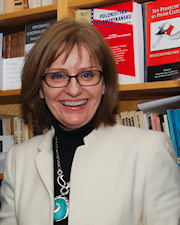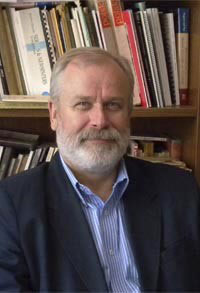The Polish Language and Literature Program in the Department of Slavic Languages and Literatures at the University of Toronto has been in existence since the 1960s. In 1996 we were informed that, together with the approaching retirement of Prof. Louis Iribarne and Prof. Hanka Markowicz, and due to budgetary restrictions, the Polish Program would be cancelled. Thankfully, as a result of appeals made to the university’s administration by the Canadian Polish Congress and the Department of Slavic Languages and Literatures that decision was partially reversed. The university chose to finance a tenured position in Polish Literature and Culture, to which Dr. Tamara Trojanowska was appointed in 1998, but nevertheless cancelled a lecturer position in the program. Since then, the continuation of Polish language courses has depended on the ongoing support of the Polish community.
The Polish Language and Literature Program at the University of Toronto is one of the biggest undergraduate and graduate programs in North America, serving on average ninety students per year. It is one of very few programs in North America offering an impressive number and range of courses on Polish literature, culture, and language, including cultural and literary surveys, genre and thematic courses, and three levels of language instruction.
In addition to a very strong undergraduate component, the program offers the only graduate program in Polish literature in Canada, and one of the most robust graduate programs in North America. Thus far it has graduated two Ph.D. students, one of whom has won a prestigious Clifford Leech Prize for his doctorate, as well as three MA students. Currently, it has four Ph.D. students writing their dissertations under the supervision of Prof. Trojanowska. One of them is a recipient of the most esteemed national award – Canada Graduate Scholarship. Two incoming MA students will strengthen the program in September 2008. Eight doctoral students from other Slavic disciplines have minored in Polish Language and Literature.
The program co-operates with many units at the University of Toronto. These include the Center for European, Russian, and Eurasian Studies, the Institute of Film Studies, the University College Drama Program, the Graduate Center for the Study of Drama, and the Center for Comparative Literature. Such cooperation involves supervision of doctoral theses, strong administrative ties, and the cross-listing of our courses with those of other programs, which attracts a diverse body of students from other disciplines to the Polish Program, on both undergraduate and graduate levels.
In the last ten years, the Polish Program has built up close community relations by co-operating with such organizations as the Council for the Support of Polish Studies at the University of Toronto, The Canadian Polish Millennium Fund, The Adam Mickiewicz Foundation, and the Władysław and Nelli Turzański Foundation. It has served both Polish and academic communities as an ambassador of Polish culture, organizing over 40 guest lectures and book launches, 3 symposia, and one international conference, which has now turned into a permanent event as a bi-annual conference on Polish Studies in North America. The Program honors its benefactors, and cares deeply for Polish youth. In April 2008 it presented the work of its graduate students at an evening organized together with the Council to honor our community donors. The same month it also hosted Polish high school students at an open house event organized specially for them.
At the present moment, the most pressing financial need concerns Polish language courses, two of which already have a source of financing – the Irene Ungar and Henryk Slaby Endowed Fund that was established six years ago. The third course, however, is in dire need of permanent support from the Polonia community. Polish language courses at the university level not only provide practical language instruction, but they also introduce students to Polish culture. Moreover, undergraduates who take all three courses receive a ‘Citation of Language Proficiency’. This is an attractive and valuable feature of the Polish Program that also allows students from other programs, particularly from History and European Studies, to complete their language requirements.
We sincerely hope that funds collected by the generous Polonia community will provide permanent financing for our language courses, and that at some point in the future the professorship in literature and culture will be converted to a permanent Chair, as has already happened with the Konstanty Reynert Chair of Polish History.
More information about the program may be found at http://www.utoronto.ca/slavic/polish



